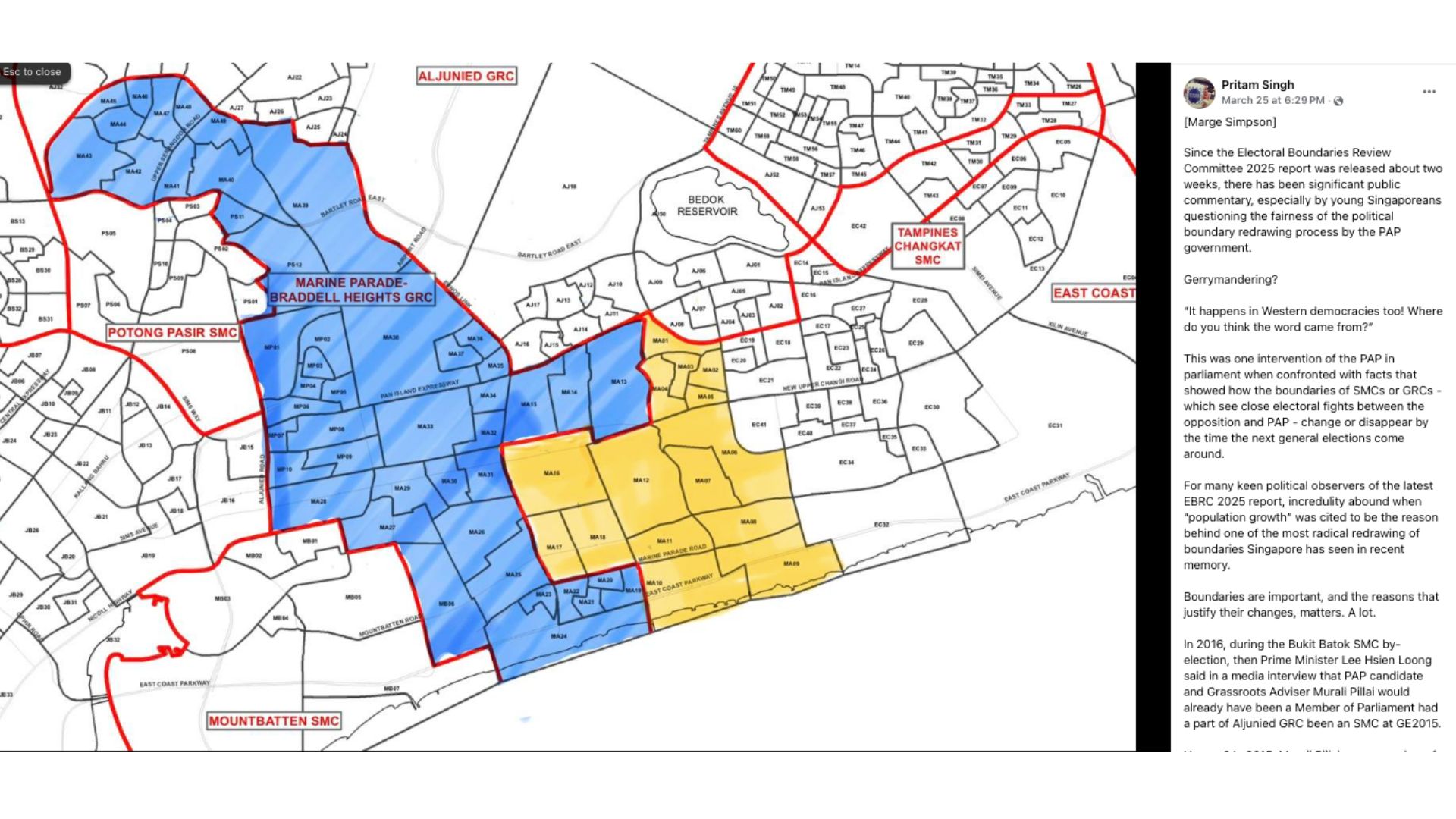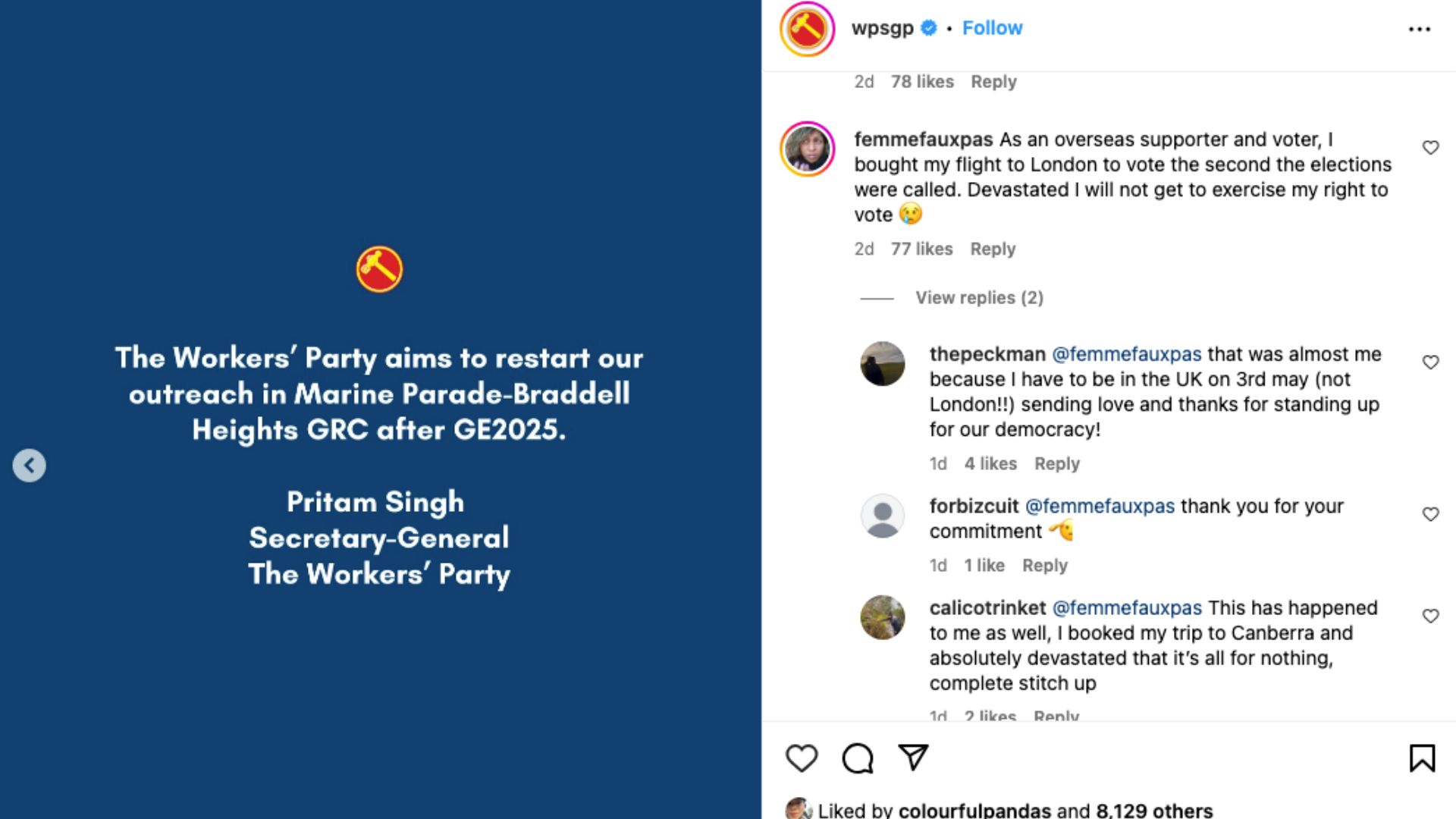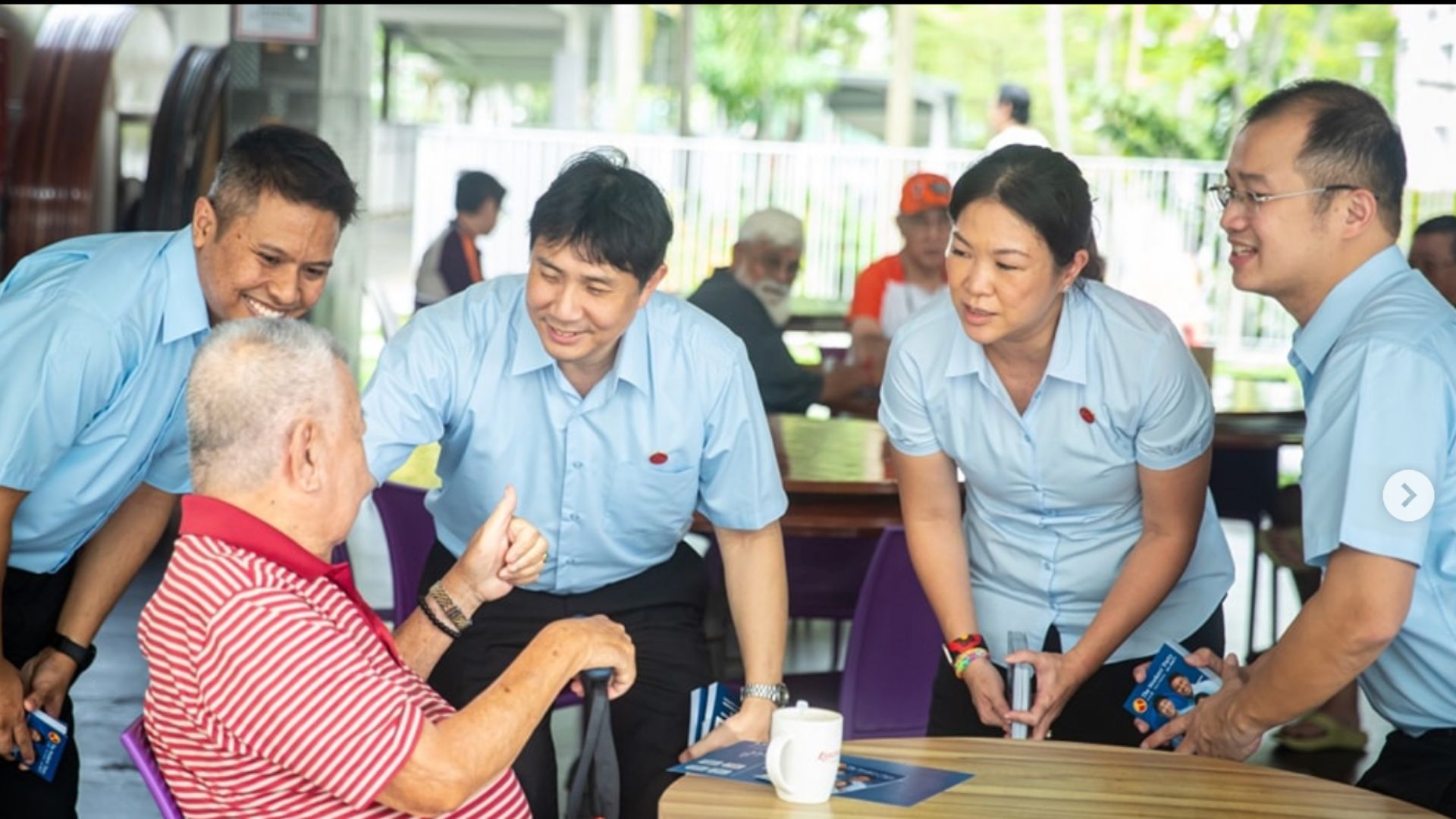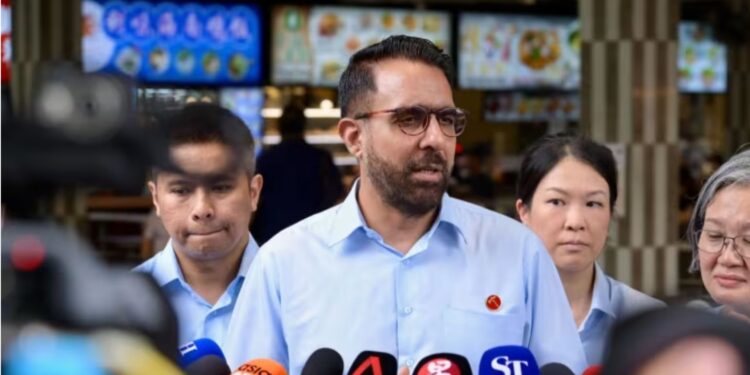The Workers’ Party’s decision not to contest the newly formed Marine Parade–Braddell Heights GRC in Singapore’s 2025 General Election has sparked widespread discussion among political observers and residents alike. For an opposition party that had garnered over 42% of votes in the area during previous contests, the walkover victory handed to the People’s Action Party raised eyebrows and left many voters feeling disenfranchised.
WP Secretary-General Pritam Singh explained the decision as one of strategic resource allocation, telling Channel NewsAsia, “We’ve got limited resources, limited candidates and we’ve got to prioritise and put our resources where we think that we can… do our best.” The party chose to focus on other constituencies, including Tampines GRC, where they believed they could make a stronger impact.
Yet beyond the immediate electoral calculations lies a deeper challenge: how to maintain credibility and connection with residents who have supported the party but now find themselves without an opposition voice. This momentary setback, however, presents a unique opportunity for the Workers’ Party to redefine political engagement in Singapore beyond the conventional electoral cycle.

Understanding the Voter Sentiment
The fallout from WP’s withdrawal is palpable among residents. Many express feeling disenfranchised, effectively denied their democratic right to choose between competing visions for their constituency. Long-time WP supporters question the party’s commitment to their community after years of growing support, while others remain sceptical about whether resource constraints tell the full story behind the decision.
Many residents of Marine Parade have expressed disappointment on social media and in community discussions. The sentiment among long-time WP supporters reflects a feeling that their voice no longer matters now that they can’t even cast a ballot for their preferred party.
Such sentiments, if left unaddressed, could significantly undermine WP’s hard-earned reputation as a reliable alternative voice in Singapore’s political landscape. The merged constituency includes areas where WP had previously built significant supporter bases, making the abandonment particularly acute for those who had consistently backed the opposition party.

Learning from Historical Precedents
Singapore’s political history offers instructive parallels. In 2015, the National Solidarity Party initially planned to contest Marine Parade GRC and MacPherson SMC but withdrew to avoid multi-cornered fights. The resulting internal conflict and public backlash demonstrated how poorly communicated withdrawals can harm a party’s credibility.
Even more dramatically, the opposition boycott in 1968 led to a parliament entirely dominated by the PAP, a move that took years for opposition parties to recover from. These examples illustrate a critical principle in Singaporean politics: how a party’s withdrawal matters as much as the reasons behind it.
Political analysis suggests that opposition withdrawals create vacuums that are difficult to fill later. The memory of perceived abandonment often lingers in the public consciousness, potentially creating hurdles for future electoral efforts in the same areas.
Does WP have a Recovery Plan?
For WP, addressing this challenge requires a comprehensive strategy that extends beyond damage control to genuine community re-engagement. The approach must unfold in distinct phases, each building upon the previous one.
The immediate response phase is critical. Within the first month, WP leadership needs to issue a follow-up communication that builds on Secretary-General Singh’s initial explanation, offering greater transparency about the decision-making process while acknowledging the disappointment felt by supporters.
The first 30 days will be critical in defining how this story is remembered. WP needs to shift quickly from explanation to action, showing residents that electoral participation is just one dimension of their commitment to the community.
Senior leadership, including Singh himself, should conduct listening tours across all neighbourhoods within the GRC, with particular attention to areas that showed the strongest WP support in previous elections. These shouldn’t be one-way explanatory sessions but genuine dialogues where residents can express their concerns directly to party leaders.
Within this first month, the party should establish a visible presence through regular neighbourhood visits and weekend community service points in high-traffic areas such as Braddell MRT, Marine Parade Central, and MacPherson Market. This visibility must be matched with substantive engagement, including micro-surveys and town halls designed to identify specific neighbourhood concerns and priorities.
Political trust is built through predictable presence. Residents need to see WP representatives regularly, not just during election season. The party’s challenge will be to maintain this presence without the immediate incentive of electoral victory.
By the second month, these initial efforts should evolve into more structured engagement. Bi-weekly’ Constituency Connect’ sessions with rotating WP representatives at fixed locations would provide continuity, while neighbourhood-specific initiatives addressing priorities identified during the listening phase would demonstrate responsiveness to resident concerns.
A regular newsletter highlighting WP’s ongoing work in the constituency and parliamentary advocacy relevant to residents would maintain communication lines. Meanwhile, a “Shadow Town Council” approach could track and highlight issues that need attention in the constituency, demonstrating that WP remains vigilant about local concerns even without official representation.
Local leadership development becomes crucial in this phase. The party should identify and cultivate community leaders from within Marine Parade–Braddell Heights to serve as WP ambassadors. A “Future Candidates” development programme would signal a long-term commitment to the constituency, while specialised volunteer teams focused on youth engagement, senior support, and local business outreach would ensure comprehensive community coverage.
Opposition parties in Singapore often struggle with succession planning. Creating structured pathways for local leaders to advance within the party not only addresses this challenge but also deepens the party’s roots in the community.
The long-term phase, beginning around six months after the walkover, should see WP establish permanent community service centres in strategic locations within the GRC—one in the Marine Parade area and another in Braddell Heights. Constituency-specific policy working groups addressing local concerns such as housing affordability, transportation connectivity, and elderly care would demonstrate serious policy engagement beyond electoral campaigning.
A comprehensive “Marine Parade–Braddell Heights Blueprint 2030” would outline WP’s long-term vision for the constituency, while a formalised “Constituency Committee” with a clear leadership structure would ensure continuity and accountability.
Community integration efforts should include partnerships with local businesses, educational institutions, and civic organisations. Scholarship and mentorship programmes specifically for residents from the constituency would create tangible benefits, while quarterly community improvement initiatives would demonstrate a commitment to local quality of life.
The most effective political engagement often happens through community institutions. By integrating with existing community structures, political parties can have an impact beyond their formal power and maintain relevance even without electoral representation.

Reframing the Narrative
Perhaps the most significant opportunity in this crisis lies in how WP can reframe the narrative around political engagement in Singapore. Rather than focusing solely on electoral contests, the party can demonstrate a more holistic approach to democratic participation.
WP should differentiate its engagement approach from the PAP’s traditional style by emphasising collaborative problem-solving with residents as co-creators rather than recipients of top-down initiatives. Multi-channel, accessible feedback mechanisms could contrast with more formal Meet-the-People sessions, while nimble, adaptive community support systems could offer alternatives to resource-intensive physical infrastructure projects.
Most importantly, by providing unconditional service regardless of electoral outcomes, WP could challenge the transactional nature of constituency rewards, which are often tied to electoral support.
The party’s messaging should emphasise several key themes: principled pragmatism that demonstrates maturity in resource allocation; responsive representation, showing that parliamentary presence isn’t the only way to advocate for constituent concerns; and democratic persistence, illustrating an unwavering commitment despite electoral setbacks.
Clear positioning statements, such as “Present Beyond Polling Day,” “Your Voice, Our Priority,” and “Building for 2030, Not Just 2025,” could reinforce a long-term commitment that extends beyond electoral cycles.
Learning from International Examples
Several international cases offer valuable insights for WP’s situation. The UK Liberal Democrats suffered significant electoral losses after breaking campaign promises when they entered the coalition government in 2010. Their recovery strategy focused on hyperlocal community work and rebuilding from the ground up in former strongholds, eventually leading to partial recovery.
Similarly, after losing significant ground in their 2015 “Orange Crush” territories, Canada’s New Democratic Party maintained riding associations and community presence, enabling partial recovery in subsequent elections. New Zealand’s Green Party has successfully maintained its relevance despite electoral system challenges by focusing on distinctive policy areas and consistently advocating for its community between elections.
These examples suggest that sustained community presence, clear differentiation, and persistent advocacy on specific issues can help maintain political relevance even during periods of electoral absence.
Navigating Singapore’s Unique Electoral Landscape
Any strategy must take into account Singapore’s unique political environment. Opposition parties face significant resource disadvantages compared to the incumbent PAP. The merging of constituencies presents particular challenges for opposition resource allocation, while limited resources necessitate strategic decisions about where to contest elections.
As Singh noted in his statement, these realities forced difficult choices. However, these constraints need not dictate the quality of engagement with residents outside directly contested constituencies.
The risks are substantial. The PAP will likely intensify its grassroots presence to counter WP efforts, while resource constraints may limit the implementation of comprehensive engagement plans. Media coverage might portray continued engagement as purely an electoral calculation, volunteers could face burnout from sustained non-electoral activities, and residents might remain apathetic or resistant after feeling abandoned.
Effective mitigation strategies include focusing on differentiated approaches rather than competing directly with PAP’s resource-intensive programmes, prioritising high-impact initiatives that leverage technology and volunteers effectively, emphasising authentic community value beyond electoral considerations, implementing volunteer rotation systems with clear recognition programmes, and conducting personalised outreach focused on hyperlocal issues.
Transforming Crisis into Opportunity
The Marine Parade–Braddell Heights GRC walkover need not define WP’s relationship with the constituency. While Singh’s explanation about resource constraints addresses the “why” of withdrawal, it represents only the beginning of a necessary conversation with disappointed residents.
The true measure of political resilience isn’t avoiding difficult decisions—it’s how effectively a party responds to the consequences of those decisions. With strategic vision, disciplined execution, and authentic engagement, WP can emerge from this situation with a stronger, more meaningful connection to the residents of Marine Parade–Braddell Heights.
In doing so, they may well establish a new model for opposition engagement in Singapore’s evolving political landscape—one that transcends the limitations of conventional electoral politics and demonstrates that democracy thrives not just at the ballot box but in the sustained, meaningful engagement between political parties and the communities they seek to serve.
RELATED: Will the Lion City Roar for Change?
Join the conversations on TheHomeGround Asia’s Facebook and Instagram, and get the latest updates via Telegram.














